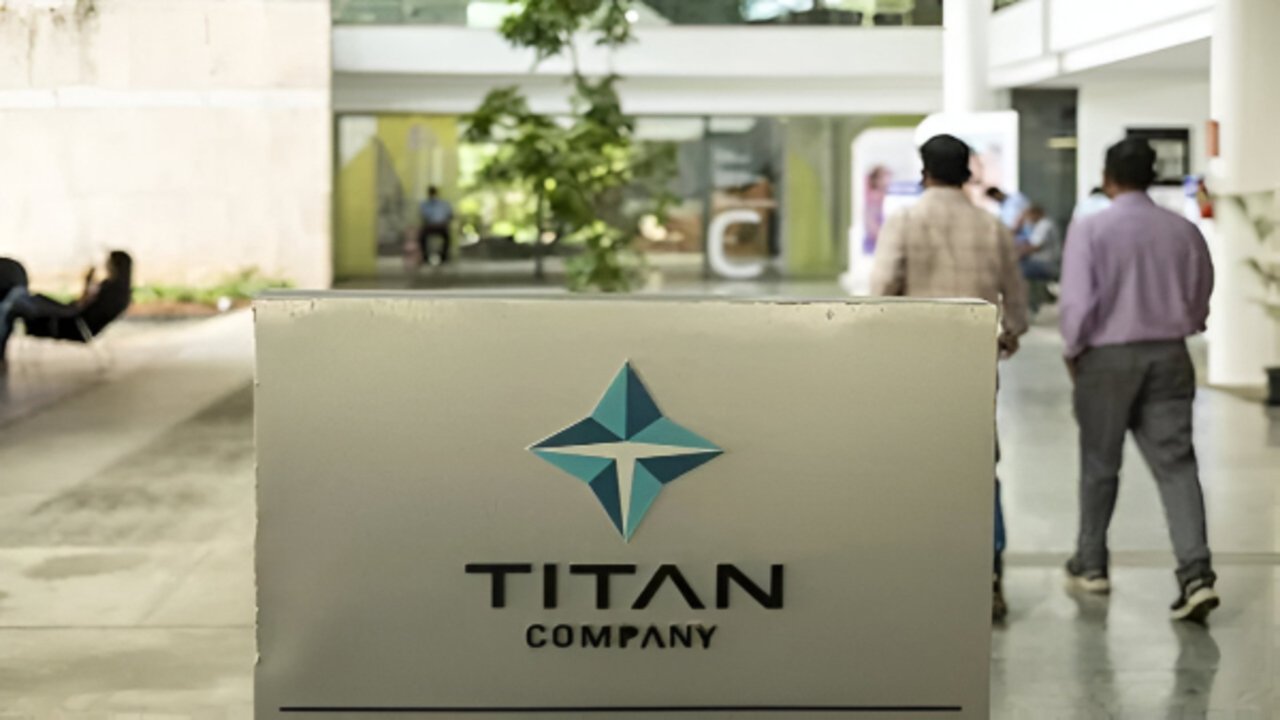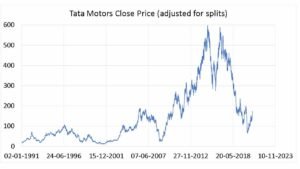Decoding the Titan Share Price | More Than Just a Number on a Screen
I was walking through the mall the other day, and something caught my eye. Not the shiny new gadgets or the latest fashion, but the sheer number of people walking out of the Tanishq store, small, elegant blue bags in hand. It got me thinking. When we talk about the Titan share price, we’re not just talking about a ticker symbol blinking on a screen. We’re talking about those bags. We’re talking about engagements, anniversaries, and impulsive festive purchases.
It’s easy to get lost in the numbers, the charts, the endless cycle of financial news. But the story of the Titan share is, at its heart, a story about us. About Indian aspirations, our love for gold, and our trust in a brand that has grown with us. It started on our wrists with watches and now it’s in our jewellery boxes. That’s the real magic here, and honestly, it’s the only way to truly understand the pulse of this stock.
For years, I’ve watched this company, and the one thing that always surprises people is how much they underestimate its core. They see “Titan” and think “watches.” It’s an understandable mistake. But it’s also a fundamental misreading of the business.
Wait, It’s Not a Watch Company?
Exactly. Not anymore. At least, not primarily.
Calling Titan a watch company today is like calling Amazon a bookstore. Sure, that’s where it started, and the Titan and Fastrack brands are still iconic, absolute powerhouses in their own right. But the engine room, the place where the real financial muscle is built? That’s the jewellery division. Tanishq. Zoya. CaratLane.

This is the part that fascinates me. The company leveraged the immense trust it built over decades with watches—a product based on precision and reliability—and transferred it to the most trust-based market in India: gold jewellery. Think about it. Buying gold in India isn’t just a transaction; it’s an emotional and financial milestone. People used to rely on their local, multi-generational family jeweller. Titan waltzed in with standardized pricing, purity guarantees (hello, Karatmeter!), and a modern retail experience, and completely changed the game. The Titan jewellery business is a masterclass in branding and execution.
And they didn’t stop. Now you have Titan Eye+ making a serious dent in the eyewear market and the emerging saree brand, Taneira. It’s a slow, methodical expansion into different lifestyle categories, all under the same umbrella of Tata-backed trust. This diversification is crucial. It creates a moat, a protective barrier around the business that makes the Titan share so compelling for long-term believers.
The Indelible Mark of the ‘Big Bull’
You can’t talk about the Titan company share price analysis without talking about the late, great Rakesh Jhunjhunwala. It’s impossible. His story with Titan is the stuff of legend on Dalal Street, and it’s a lesson that goes far beyond just one stock.
I remember reading about how he first invested back in 2002-2003 when the stock was trading at a price that seems almost comical today. Everyone saw a struggling watchmaker. He saw a consumer brand with immense potential, managed by the Tatas, just waiting for a catalyst. That catalyst was the jewellery business taking off. His conviction was so strong that he held on, and even increased his stake, through thick and thin. This wasn’t just an investment for him; it was a partnership in vision.
The story of Rakesh Jhunjhunwala Titan is so powerful because it embodies the holy grail of investing: identifying a great company and having the patience to let it grow. It’s a narrative that has drawn countless retail investors to the stock, hoping to catch even a fraction of that lightning in a bottle. It adds a certain… aura to the share that you don’t find in many other companies. Even now, with his passing, his family’s holding remains a key point of discussion in every bit of Titan news.
But here’s a thought. While his story is inspirational, it’s also a reminder that his journey was over decades. The market today is different, and while the legend provides a tailwind, one must analyze the company on its current merits, not just past glory. For more on how business legends are made, you can check out some fascinating stories on platforms like GoTrendingToday Business.
So, What Actually Influences the Titan Share Price Day-to-Day?

Okay, let’s get into the nitty-gritty. Beyond the grand narratives, what makes the stock tick up or down on any given Tuesday?
First, there’s the obvious: consumer sentiment. Titan sells discretionary items. Things people *want*, not necessarily things they *need*. When the economy is booming and people feel good about their jobs and future, they’re more likely to buy a new watch or a pair of earrings. When things are tight, that’s the first expense to get cut. So, keep an eye on broader economic indicators.
Then there’s the wedding and festival seasons. This is uniquely Indian and a massive driver for Titan. The demand during Diwali, Dhanteras, and the peak wedding season (which, let’s be honest, feels like it’s all year round now) can make or break a quarter. The company’s quarterly results, especially the commentary on demand during these periods, are scrutinized heavily. The latest Titan Q4 results, for example, will give you clues about post-festival consumer behaviour.
And what about gold prices? It’s a double-edged sword. Rising gold prices can deter some buyers due to higher ticket sizes, but it also increases the value of the company’s existing inventory. Titan is pretty adept at managing this, often using hedging strategies and offering gold-rate-lock schemes to customers. So, while it matters, it’s not the simple one-to-one correlation you might think. For real-time data, I often have a tab open for Moneycontrol just to keep a pulse on the commodity markets.
Ultimately, it’s a blend of macro-economic health, cultural spending patterns, and the company’s own execution. It’s a complex dance. It reminds me of the intricate strategies needed in some online games, where you have to manage resources and anticipate opponent moves, something you might read about in articles on topics like the Free Fire Tournament.
I keep coming back to this point because it’s crucial: The Titan share price reflects a story of trust. Trust in the Tata name. Trust in the purity of its gold. And the market’s trust that the management can keep navigating this intricate dance successfully for years to come.
Frequently Asked Questions
Why does the Titan share price sometimes fall when the market is doing well?
This is a great question because it gets to the heart of stock-specific issues. A fall in the Titan share price on a good market day could be due to several reasons. It might be profit-booking after a strong run, negative news specific to the gems and jewellery sector, a sudden spike in gold prices making investors nervous about demand, or a brokerage report that has downgraded the stock. It’s rarely about just one thing and often reflects concerns about its high valuation compared to the broader market.
Is Titan basically just a jewellery stock now?
While the jewellery division contributes over 85% of the revenue, calling it *just* a jewellery stock is a bit reductive. The watch and eyewear divisions provide important diversification and brand recall. Think of it as a “lifestyle retail” company with a heavy, profitable focus on jewellery. This distinction is important because its future growth might come from scaling up the smaller verticals like Taneira (sarees) or international expansion.
What was Rakesh Jhunjhunwala’s real impact on Titan?
His impact was twofold. First, his massive investment and vocal belief in the company gave it a stamp of approval that attracted scores of other institutional and retail investors. He was its biggest evangelist. Second, his presence on the board provided strategic oversight and a long-term vision that helped management navigate challenges. His legacy is now baked into the stock’s DNA as a story of long-term wealth creation.
How much does the wedding season really affect the stock?
A lot! The wedding season in India is a massive economic event, and jewellery is a huge part of it. Titan’s quarterly results, especially for Q3 (October-December) and Q4 (January-March) which cover major festivals and wedding dates, are heavily dependent on this demand. A weak wedding season can lead to a significant miss in earnings expectations, directly impacting the share price. It’s a core pillar of their business cycle.












Post Comment